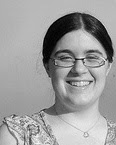I feel as though I have heard a proverb (though I can't remember it exactly) that we see ourselves most clearly by looking at others. If no one has said it before, then someone should have. Coming to Palestine, I see the United States and its history more clearly than I ever have before.
I grew up fed on a diet of quaint European American vocabulary of conquest: "pioneers" and "settlers" filled my history books with paintings of open -- uninhabited, of course -- prairie. Certainly, we learned about the horrendous things done to First Nations people/Native Americans, but the story of genocide was kept tucked safely in the history books. The political climate in which I was raised covertly taught me: "This was a sad chapter of our country's history that -- thank goodness -- is now over. Now, why do the Native Americans get so upset about treaty violations? Why can't they just get over the past?"
I see now that settlement and conquest is not so sterile. I see myself and the United States' history very differently now that I have have spent some time in Palestine. I feel as though I am watching my history unfold in a time warp, in the present day. I see the process of settlement and colonization. I see settlers and settlements as Israelis take more and more land in the West Bank. (This map shows the area to which I am referring -- the West Bank is land on which Israelis are currently settling.) And it is not a quaint, picturesque image of folks moving onto uninhabited land. The land was inhabited, and this process of settlement causes daily and very real pain to people, created in God's image. Many Palestinians have been made refugees and many Palestinians in the West Bank have suffered as a result of the lack of recognition of the fact that people were living on the land prior to the establishment of Israel as a country in 1948.
Slowly, over the last few months (I started to think a bit about this after I was last here in June), I am beginning to think of owning up to my country's history. When I traveled across the United States last month, I saw the hundreds of miles of land stretching on either side of the highway. After being here in Palestine, I couldn't just watch the land pass by anymore. It made me feel sick. I see now I was traveling on stolen land, that was taken through force, genocide, and human rights violations. And I wonder: if this is how the United States gained its land, what spiritual scars has it left on the country? How does such a bloody history shape the spiritual wellness (or lack thereof) of the nation?
It is uncomfortable to see myself and my country in such sharp focus. But, I think as people of faith, we are called to engage this world, in the words of a good friend, "with eyes wide open."
And this is what I see, on this side of the looking glass.
About this Blog
"Ordinary People" is something of an intentional misnomer. I live and work with Palestinians practicing nonviolent resistance to the Israeli occupation. They are doing things that are hardly "ordinary": committing themselves to active nonviolence and to loving their enemies -- following the commands of One who was anything but ordinary. And yet, the Palestinians with whom I work are also very ordinary -- they are not some kind of spiritual superheroes/superheroines who do things most folks can't do. They are simply ordinary people daily committing themselves to living a higher calling -- a calling of love and active nonviolence.
Subscribe to:
Post Comments (Atom)




1 comment:
It's interesting, jess...It's still happening here in NY. you are getting good at the blogging thing.
Post a Comment